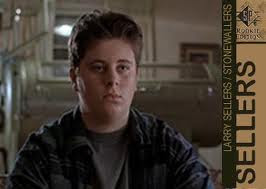
I have a theory that the existence of our class has caused the world to love and drink White Russians again. Okay, no, but seriously, they're making a come back. One of the first few weekends of school my friends and I got together to watch the movie The Big Lebowski because they're all huge movie buffs and love the film. We watched the movies and drank White Russians. That was my first time having the drink and honestly I don't know why anyone would voluntarily drink it on a normal basis. I don't drink coffee and have never been a huge fan of milk so that probably has a lot to do with it, being that the three components of the drink are vodka, Kahlua and milk or cream (or half and half if you're the Dude). Anyway, since this class of ours began, I've seen White Russians everywhere! My office staff at the Wellness Center went on a trip to Halloween Horror Nights two weekends ago and the drink of the trip was White Russians which I thought was a total 80s/90s thing. I mean, when I told my dad I was drinking White Russians he told me that he had a bad night with them back in the 80s. Anyway, I encountered White Russians again this past Thursday night! I went to Chili's with my office and everyone was ordering White Russians. Okay, so maybe my office staff just loves White Russians, but I'll choose to believe that our class is bringing them back.






